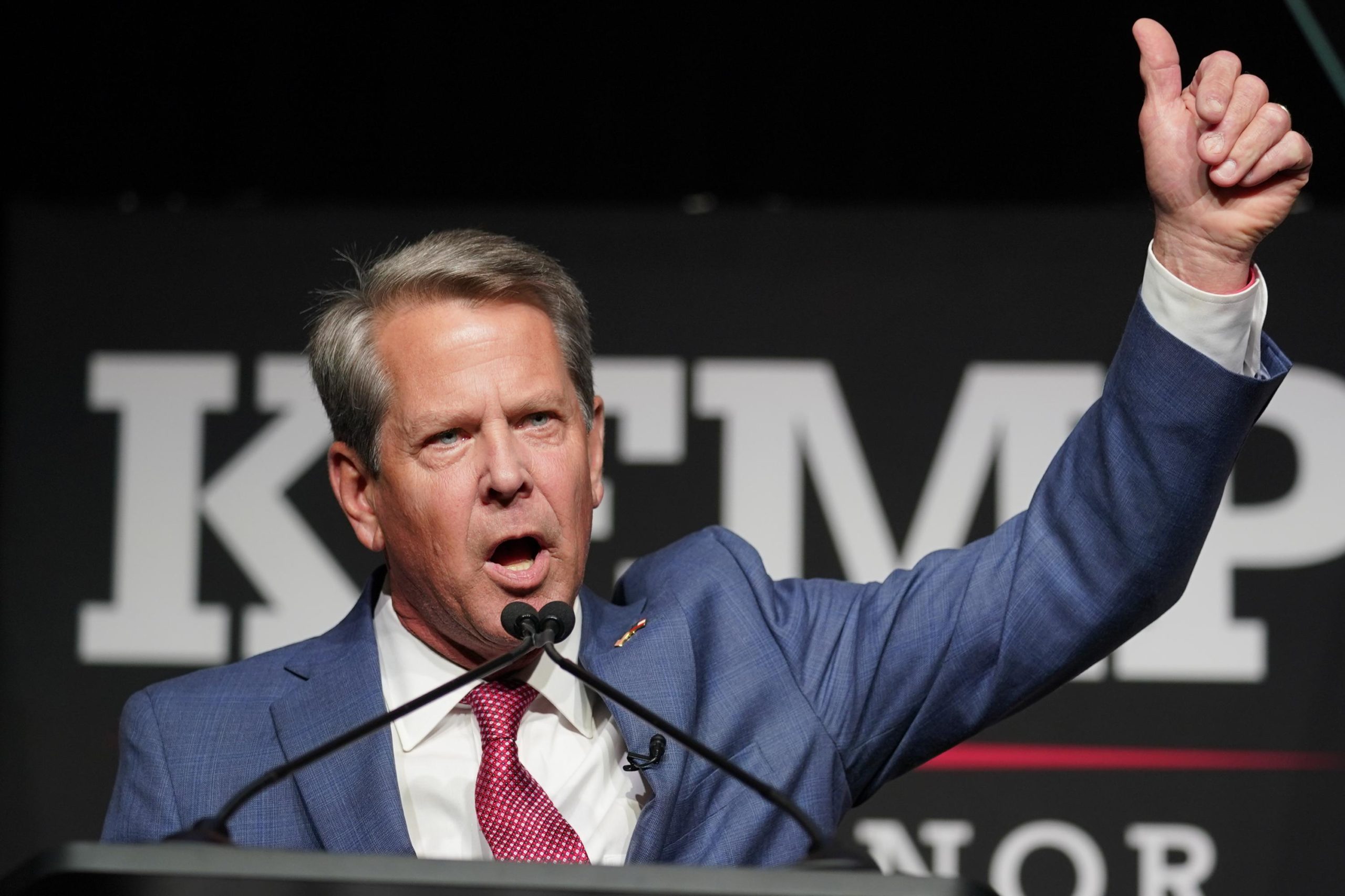
By: Nathan Williams
Republicans from across the country gathered March 13-16 in National Harbor, Maryland for the 40th Annual Conservative Political Action Conference. Unlike the conference in 2012 where the focus was ousting President Barack Obama from office, this year’s theme reflected a party in pursuit of recalibration. The conference featured professional panelists who debated splintering issues like abortion rights, the national deficit, a balanced budget amendment, gay marriage, immigration, and traditionalism, all while the next generation of GOP leadership presented competing visions for the party’s future. Republicans are eager to inject new electricity into the conservative movement. The body of the “New Republican” era began around 2010 and brought a new generation of leadership like Scott Walker to Wisconsin, Nikki Haley to South Carolina, and Chris Christie to New Jersey. The fresh Republican leadership may be formidable, but the GOP is still missing a soul – still missing a mass movement, a name, or a face to associate with the new montage of fresh intellectualism. The current Republican Party resembles the GOP in the late 1970s with fragmented membership, disorganized platforms, and no clear standard-bearer. Nonetheless, the next Republican Revolution is underway.
It is not mere coincidence that former President Ronald Reagan’s name still burns the halls of GOP gatherings nationwide. Like the coalition crafted by the ambitious then-Governor of California in the years after his rise to national prominence following the historic 1976 Republican National Convention, the next GOP leader must broaden the party’s base beyond traditional voters to remain competitive. The next standard bearer must embrace innovation, pragmatism, and the element that perhaps propelled the conservative kingmaker to victory in 1980 – populism. The Republican Party must portray itself as the party of “we the people” while embracing modern realities with compassion rather than angst.
Republicans are united in opposition to the federal government’s expansion experienced during the Obama Administration. From budgets to drones, the party is beginning to align itself as the party of liberty for the individual. The hottest firebrand in Washington right now, Senator Rand Paul (R-Ky.) embodies the principle of increasing personal liberty. He toppled twenty-two other rising GOP stars to win the CPAC 2016 Presidential straw poll after electrifying the crowd with a fiery presentation focused emphatically on the limits of presidential power. Many stood during his speech donning shirts reading “Stand with Rand,” a movement born after Senator Paul’s recent thirteen-hour filibuster of CIA Director John Brennan’s nomination. He has inherited loyal supporters en masse as the natural heir to his father’s Libertarian-leaning throne, and is widely expected to pursue the 2016 presidential nomination. Senator Paul quipped that “new GOP will need to embrace liberty in both the economic and personal sphere if we’re going to win nationally. Liberty needs to be the backbone of the GOP.” Whether future policy debate focuses on the economy or drones in the Middle East, we can expect to hear concerns of government intrusion on individual liberties more frequently. The increase of individual liberty will likely be a central platform in upcoming national elections.
Pundits partially blame GOP presidential nominee Mitt Romney’s defeat on his hardline stances against petulant social issues, especially now that recent polling is beginning to show aggregate realignment within the electorate. Intricate social issues now dominate party platforms. Panelists debated in forums titled “A Rainbow on the Right” and “The Pro-Life Fight: 40 Years after Roe v. Wade” which may signal that the GOP leadership is flirting with modifying intensity on social issues as a mechanism for base expansion. Senator Marco Rubio (R-Fla.), who is widely regarded as a future presidential contender himself, dismissed the notion that the party cannot win based on their social views when he advocated improving the party’s message rather than abandoning traditional conservative values. He invigorated the audience by arguing, “just because I believe states should have the right to define marriage in the traditional way does not make me a bigot, and just because we believe that all human life is worthy of protection does not make you a chauvinist.” While many suggest that social conservatism may no longer be nationally palatable, some emphasize removing social issues from the platform altogether when issues like federal spending, the national deficit, and immigration pose larger threats. Regardless of the direction taken by the party, social issues will continue to catalyze infighting as messages are refined and positions evolve in pursuit of winning support from the next generation.
The “Young Guns” have been the fathers of fury in the debate over the national deficit. With Rep. Eric Cantor (R-Va.) as the leader, Rep. Kevin McCarthy (R-Calif.) as the strategist, and Rep. Paul Ryan (R-Wis.) as the thinker, the group authored the 2010 congressional midterm strategy textbook which history books will remember as the largest wave election since 1994. Gov. Mitt Romney (R-Mass.) even selected the thinker, House Budget Committee Chairman Paul Ryan, as his running-mate in the 2012 presidential election. Congressman Ryan has since assumed the role of the party’s chief economic trustee after the GOP ticket failed to secure 270 electoral votes last November – a role that will either make or break his political future. He was the keynote speaker at this year’s conference where his speech focused on his controversial new budget proposal. Ryan firmly told the audience, “We say to Washington, what we’re willing to pay is what you’re able to spend. Period. Every family lives within a budget. Washington should do the same thing.” The updated “Path to Prosperity” budget plan considers the repeal of Obamacare, slashes federal spending in an array of domestic programs, and projects a balanced budget within 10 years. In a close party-line vote this past week, the House passed the measure, but the Democrat-controlled Senate effectively killed the legislation a short time later. Akin to Congressman Ryan, conservatives nationwide have vigorously championed fiscal responsibility primarily through historic spending reductions, but their efforts have not generated the expected electoral fruition. The entire 2012 elections were defined by the sluggish economy, and GOP candidates offered balanced solutions to rein in federal spending. So, why did they lose? The GOP’s economic platform is typically favored by voters, but Republicans still were not able to win solely on this premise because their primary message was distilled and miscommunicated. Ryan was given the vice-presidential nod primarily due to his extensive knowledge of the federal budget, and he understands that Republicans must futuristically and emphatically convey fiscal responsibility to attract voters. He must realize that his position largely empowers him to steer the GOP’s future. He is off to a competitive start – Ryan emphasized that the GOP should be “the party of equal opportunity.” The budget crusader will need to adjust his rhetoric because while the country likes to see a good solider in combat, they also demand balance. The solutions he pursues will risk sinking his party and his political future to the ranks of his mentor, former Congressman Jack Kemp, who has become irrelevant since his meteoric rise and fall during the 1980s.
The GOP vision for the future has been painted as outdated and retrogressive. But the truth is that both parties are responsible for trying to solve today’s problems with yesterday’s solutions. Innovation should be the foremost priority in our country today because without it, Henry Ford could not have brought us the automobile, Steve Jobs the iPhone, and Mark Zuckerberg Facebook. Both the Republican Party and the American electorate are craving fresh ideas to combat today’s problems. In his professor-like lecture, former House Speaker Newt Gingrich (R-Ga.) reminded the crowd that “[conservatives] don’t need new principles, but [they] need new ideas on how to implement [their] principles in the twenty-first century.” With a light bulb and candle on stage as props, Gingrich related perhaps the most influential global invention with the politics of 2013 by contrasting the establishment as “prisoners of the past” against innovative intellectualism as the “pioneers of the future.” By embracing new ideas on how to pursue, navigate and govern the new world around us, we empower individuals. The Republican Party should challenge conventionalism by adopting the aforementioned prerogatives – both in campaigns and in practice – to reclaim national credibility.
The Conservative Political Action Conference’s 40th Anniversary encompassed both a reminiscent theme reflective of the past four decades and stimulated conversation on which paths to pursue forward. Republicans are facing the same challenges they faced 40 years ago, only under different conditions and in a new world. In 1975, at one of the initial CPAC gatherings, Ronald Reagan advised fellow conservatives by quipping, “Our people look for a course to believe in – a new and revitalized party raising a banner of no pale pastels but bold colors which make it unmistakably clear where we stand.” The GOP today must respond to the new realities in which we live, and must adapt and evolve to today’s world or risk becoming what Newt Gingrich describes as “prisoners of the past.” The GOP must welcome the pragmatism found in state capitals across the country like found in Virginia with Gov. Bob McDonnell, New Mexico with Gov. Susana Martinez, and Tennessee with Gov. Bill Haslam. Republicans must promote liberty, generate mutual respect for those who do not share the same values, continue advocating responsible economic stewardship but with a more opportunistic tone, and most critically, embrace innovation if the path forward should lead to victory.
President Abraham Lincoln’s words of wisdom still maintain relevance today: “The dogmas of the quiet past are inadequate to the stormy present. The occasion is piled high with difficulty, and we must rise with the occasion. As our case is new, so we must think anew and act anew.”

